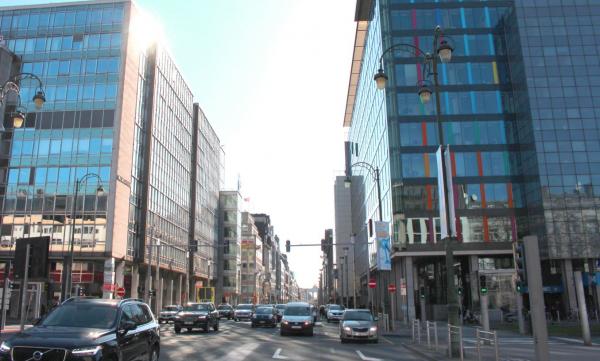The Brussels Regional Government approved a strategic approach to increase Brussels’ attractiveness as an international host city, going all out to cement its position as the capital of the European Union.
The focus of the vision is on accelerating and strategically rolling out the strategy to transform the European Quarter and strengthen public services for international Brussels residents.
“The Brussels Regional Government realises only too well that the presence of the European and international institutions is of great importance to Brussels and that this also brings certain challenges,” said Brussels Minister-President Rudi Vervoort. It has been conducting a structured dialogue with the European institutions on a regular basis since 2015.
The Commissariat for Europe and International Organisations plays a central role in this dynamic, which is bearing fruit, said Vervoort said. “The headquarters policy interfaces with very different areas of competence (such as welcoming workers, developing the European Quarter, mobility, education, tourism, and so on) and thus requires close cooperation between all Belgian authorities.”
‘Brussels is Europe’
Therefore, he is “delighted” with this joint initiative with Prime Minister Alexander De Croo, which commits the Federal Government to “follow up all dossiers of common interest related to our international status, in coordination with the Capital Region.”
Brussels hosts numerous European and International institutions, together accounting for about 120,000 jobs – good for an economic value of roughly €5 billion a year, according to a study by the Brussels commissariat that is the link between the European and International institutions and the Brussels-Capital Region, commissioner.brussels.
“Brussels is Europe and Europe is Brussels. We will make every effort to strengthen our position as European capital,” said Brussels State Secretary for Urbanism and European and International Relations Pascal Smet. “Brussels will welcome and support its international residents even better and we will accelerate the transformation of the European Quarter into a vibrant city district.”
In recent years, Brussels already took several initiatives to strengthen its position as the European capital. The Schuman Square – still an ordinary roundabout now – will become an iconic city square at Smet’s initiative, for example.

Credit: perspective.brussels
Preparatory works on the square will start in spring 2023. In May 2022, Vervoort, Smet and Brussels city councillor for urban planning and public space Ans Persoons also presented the urban development lines for the future of the European District.
In recent years, the metamorphosis of the European Quarter has begun. Schuman Square will soon no longer be a dull roundabout, but a beautiful urban square where people can meet. Today, the European Quarter is still a predominantly office district with too few high-quality public spaces.
But with Vervoort’s and Smet’s strategic approach, this is about to change drastically: in addition to Schuman, Place Luxembourg – ‘Place Lux’ for numerous international Brussels residents – will become the beating heart of the neighbourhood, as the square will undergo a complete metamorphosis.
The Cinquantenaire Park will also be renovated, as the Federal Government wants to completely revamp it by 2030 – Belgium’s 200th anniversary. Additionally, the authorities will also look into building a pedestrian and cyclist bridge over the railway line between the European Parliament and Schuman.
Vibrant metropolitan hubs
This approach is already being applied in other parts of Brussels, such as the North Quarter, where the public space will be completely overhauled in the coming years and many buildings will undergo a metamorphosis.
The North Quarter will get a new tram line, the reopening of the Zenne River and the transformation of monofunctional office buildings, such as the Proximus Tower and the WTC I & II building, into vibrant metropolitan hubs with housing, restaurants, rooftop terraces and other urban functions in addition to offices.
The cherry on the cake in the North Quarter will be the KANAL Centre Pompidou, the museum of contemporary art in the former Citroën building that will open its doors in 2024. Vervoort and Smet will similarly coordinate all urban developments in the European district.
Source : The Brussels Times



































